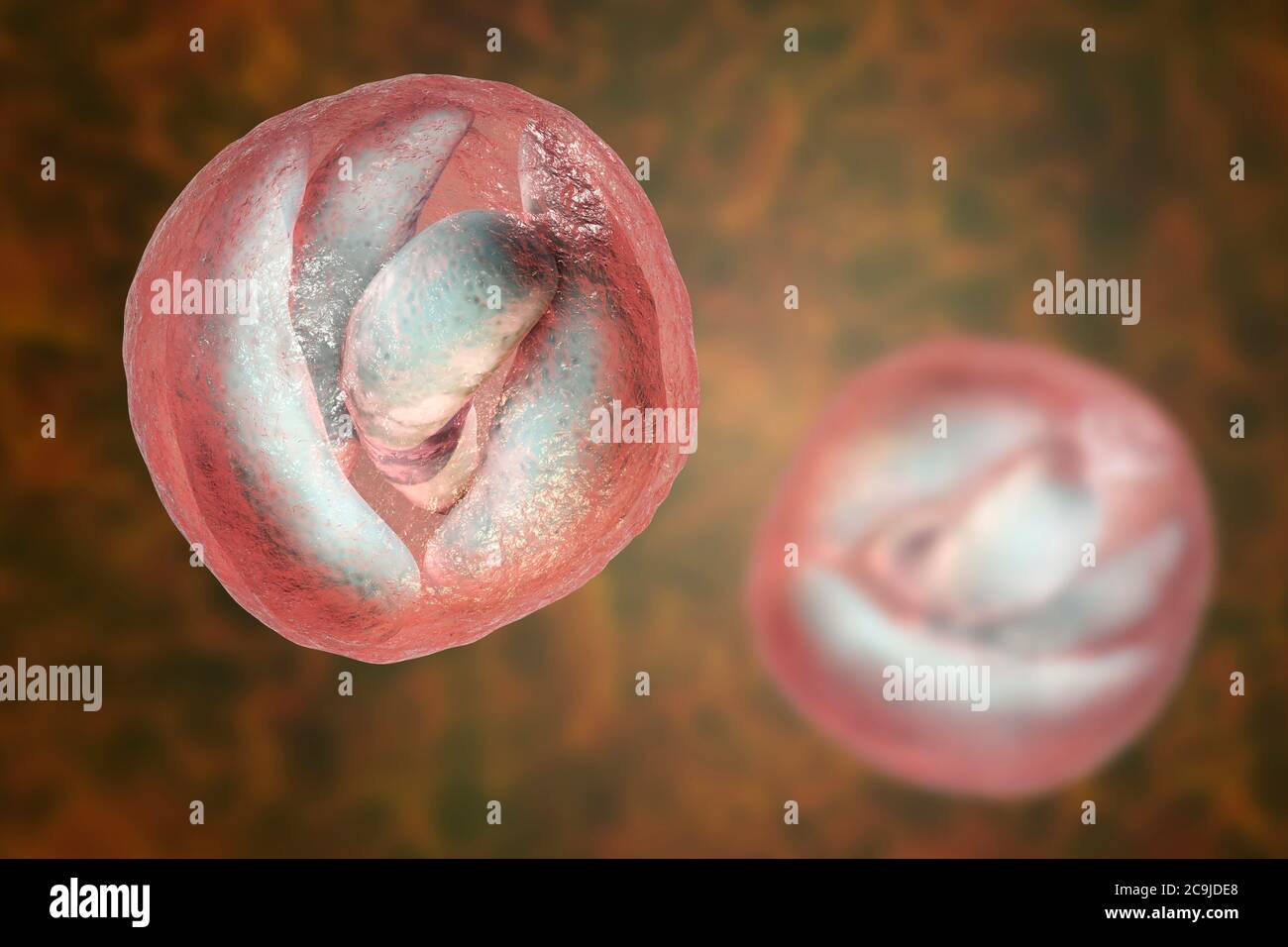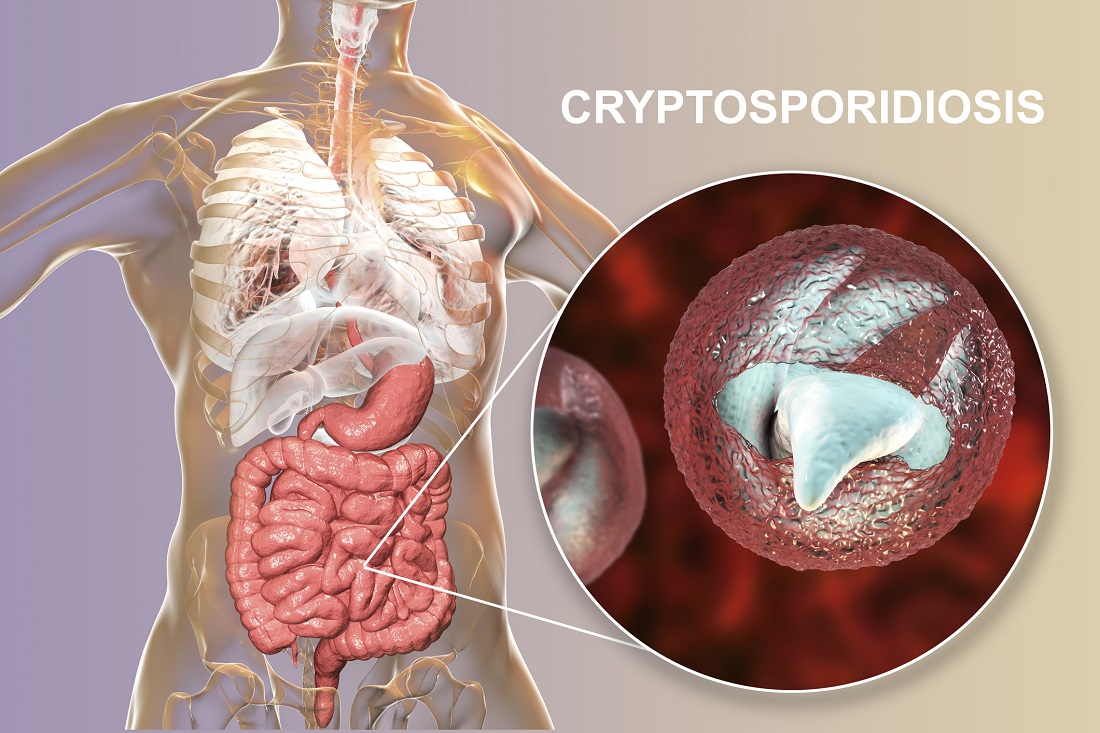This! 26+ Hidden Facts of Cryptosporidium Parasite: Cryptosporidium parasites are environmentally hardy, withstanding common water treatments such as chlorination, and thus remain a major cause of waterborne outbreaks in industrialized countries as.
Cryptosporidium Parasite | these species cause cryptosporidiosis in vertebrates, especially neonates. Cryptosporidium parasites are ubiquitous, except in antarctica, and infection is more common in warm, moist months. Cryptosporidium, the causative organism of cryptosporidiosis, is no exception. Learn more about the symptoms, causes, risk factors, treatment, and prevention of cryptosporidiosis. Two species are responsible for most human infections:
Cryptosporidiosis is a parasitic infection of the small intestine. Bennett je, dolin r, blaser mj, eds. Cryptosporidiosis, sometimes informally called crypto, is a parasitic disease caused by cryptosporidium, a genus of protozoan parasites in the phylum apicomplexa. It results from exposure to cryptosporidium parasites, which live in the intestines of humans and other. Cryptosporidiosis is a diarrheal disease caused by parasites named cryptosporidium;

Cryptosporidiosis is a parasitic infection of the small intestine. Cryptosporidium, the causative organism of cryptosporidiosis, is no exception. It is an obligate intracellular parasite of man and. Cryptosporidiosis is a diarrheal disease caused by parasites named cryptosporidium; The parasite cryptosporidium causes this infection. Cryptosporidium is a small protozoan parasite that infects the microvillous region of epithelial cells in the digestive and respiratory tract of vertebrates. Both the parasite and the disease are commonly known as crypto. Cryptosporidium hominis, which primarily infects. When cryptosporidia invade the body, it moves to the small. Learn more about the symptoms, causes, risk factors, treatment, and prevention of cryptosporidiosis. Cryptosporidiosis, sometimes informally called crypto, is a parasitic disease caused by cryptosporidium, a genus of protozoan parasites in the phylum apicomplexa. Cryptosporidium is a genus of apicomplexan parasites that infect a wide range of vertebrates typically, the parasite infects the microvillus border of the gastrointestinal epithelium causing. Cryptosporidiosis is the infection in humans and animals with cryptosporidium spp., which are protozoan, obligate intracellular parasites.
Cryptosporidium parvum is a protozoan and an obligate intracellular parasite (a parasite that cannot survive without a host) that commonly causes an opportunistic infection in immunocompromised hosts. Cryptosporidium and toxoplasma are parasites that have caused problems worldwide. Cryptosporidiosis is caused by members of the genus cryptosporidium, a coccidian parasite in the family cryptosporidiidae, subclass cryptogregaria and phylum apicomplexa. Millions of parasites can be released in a single bowel movement which are then passed on to others through accidental ingestion. Cryptosporidiosis (often called crypto for short) is a highly contagious intestinal infection.

Cryptosporidium parvum is a protozoan and an obligate intracellular parasite (a parasite that cannot survive without a host) that commonly causes an opportunistic infection in immunocompromised hosts. When cryptosporidia invade the body, it moves to the small. It is an obligate intracellular parasite of man and. these species cause cryptosporidiosis in vertebrates, especially neonates. The parasite cryptosporidium causes this infection. Cryptosporidium and toxoplasma are parasites that have caused problems worldwide. Cryptosporidiosis is a parasitic infection of the small intestine. Two species are responsible for most human infections: It results from exposure to cryptosporidium parasites, which live in the intestines of humans and other. Cryptosporidium parasites are ubiquitous, except in antarctica, and infection is more common in warm, moist months. Learn more about the symptoms, causes, risk factors, treatment, and prevention of cryptosporidiosis. Cryptosporidiosis is caused by members of the genus cryptosporidium, a coccidian parasite in the family cryptosporidiidae, subclass cryptogregaria and phylum apicomplexa. These were first discovered in mice in 1912 and first linked.
Cryptosporidium parasites are ubiquitous, except in antarctica, and infection is more common in warm, moist months. Cryptosporidiosis is a diarrheal disease caused by parasites named cryptosporidium; Dickson and daniel discuss cryptosporidiosis, caused by the protozoan parasite cryptosporidium parvum. Bennett je, dolin r, blaser mj, eds. It is an obligate intracellular parasite of man and.

Cryptosporidiosis is the infection in humans and animals with cryptosporidium spp., which are protozoan, obligate intracellular parasites. Millions of parasites can be released in a single bowel movement which are then passed on to others through accidental ingestion. It affects the distal small intestine and can affect the respiratory tract in both immunocompetent. The parasites have a life cycle that can be completed in humans and many types of animals. These were first discovered in mice in 1912 and first linked. It is an obligate intracellular parasite of man and. The parasite cryptosporidium causes this infection. 1, 20 in the united states, the incidence peaks from july through september. Cryptosporidium parasites are ubiquitous, except in antarctica, and infection is more common in warm, moist months. Cryptosporidium parasites are environmentally hardy, withstanding common water treatments such as chlorination, and thus remain a major cause of waterborne outbreaks in industrialized countries as. Cryptosporidiosis is a diarrheal disease caused by parasites named cryptosporidium; Both the parasite and the disease are commonly known as crypto. When cryptosporidia invade the body, it moves to the small.
It affects the distal small intestine and can affect the respiratory tract in both immunocompetent cryptosporidium. Cryptosporidiosis is the infection in humans and animals with cryptosporidium spp., which are protozoan, obligate intracellular parasites.
Cryptosporidium Parasite: Cryptosporidium is a microscopic parasite that causes the diarrheal disease cryptosporidiosis.
Source: Cryptosporidium Parasite

Post a Comment
Post a Comment